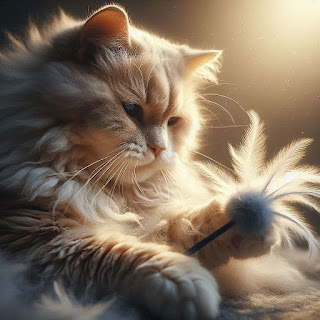Senior Cat Care: Addressing the Needs of Older Cats
As our furry companions age, they require a bit more attention and care to ensure they live a happy and healthy life. Senior cats, typically defined as those over the age of seven, often face unique challenges. Understanding their needs is essential for providing the best possible care. In this article, we will explore key aspects of senior cat care, including health considerations, dietary adjustments, and tips for enhancing their quality of life.
Understanding the Aging Process
Cats age differently than humans, and this process can lead to various health issues. Older cats may experience changes in their mobility, senses, and overall behavior. It’s important to be aware of these changes to help your feline friend feel comfortable and secure. Regular veterinary check-ups are vital to monitor their health and catch any potential issues early.
Common Health Concerns
Senior cats are prone to several health issues, including arthritis, dental disease, kidney problems, and hyperthyroidism. If you notice your cat showing signs of discomfort, such as difficulty jumping or decreased grooming, it may be time for a veterinary visit. Keeping a close eye on their habits can help you identify any changes that may indicate a health concern.
Tailoring Their Diet
Diet plays a crucial role in your senior cat’s health. As cats age, their nutritional needs change. Look for high-quality cat food specifically formulated for seniors, as these often contain ingredients that support joint health, maintain muscle mass, and promote kidney function. It’s also important to ensure they have access to fresh water at all times. Hydration is key to preventing urinary tract issues, which are common in older cats.
Maintaining a Comfortable Environment
.Creating a comfortable living space for your senior cat can greatly enhance their quality of life. Make sure their bed is cozy and placed in a quiet area of your home, away from drafts and noise. Provide easy access to their favorite resting spots, and consider using ramps or steps to help them reach higher places without straining their joints.
Enriching Their Life
Just because your cat is older doesn’t mean they don’t enjoy playtime. Engaging in gentle play can stimulate their minds and bodies. Use soft toys, laser pointers, or feather wands to encourage light exercise. Puzzle feeders can also provide mental stimulation while promoting healthy eating habits.
Keeping an Eye on Grooming
Older cats may not groom themselves as thoroughly as they once did, leading to matting or skin issues. Regular brushing can help keep their coat healthy and reduce hairballs. Additionally, check their ears, teeth, and nails regularly. Dental health is particularly important, so consider incorporating dental treats or toys into their routine.
Providing Veterinary Care
Regular veterinary visits are essential for monitoring your senior cat's health. Your vet can perform necessary screenings and blood tests to catch any potential issues early. Discuss your cat's changing needs and any concerns you may have. This proactive approach can lead to a longer, healthier life for your furry friend.
Conclusion
Caring for a senior cat requires love, patience, and understanding. By addressing their unique needs and making necessary adjustments to their diet, environment, and routine, you can help ensure that your aging feline remains happy and healthy. Regular veterinary check-ups, tailored nutrition, and gentle playtime will go a long way in enhancing your senior cat's quality of life. Remember, every moment spent with your furry friend is a precious gift, and with the right care, you can cherish these moments for years to come.










